A Comprehensive Guide to Long-term Residency in The Netherlands
Country Profile:
The Netherlands, situated in the northwest region of Europe, is a lowland country. It consists of the mainland Netherlands and three nations within the Caribbean area.
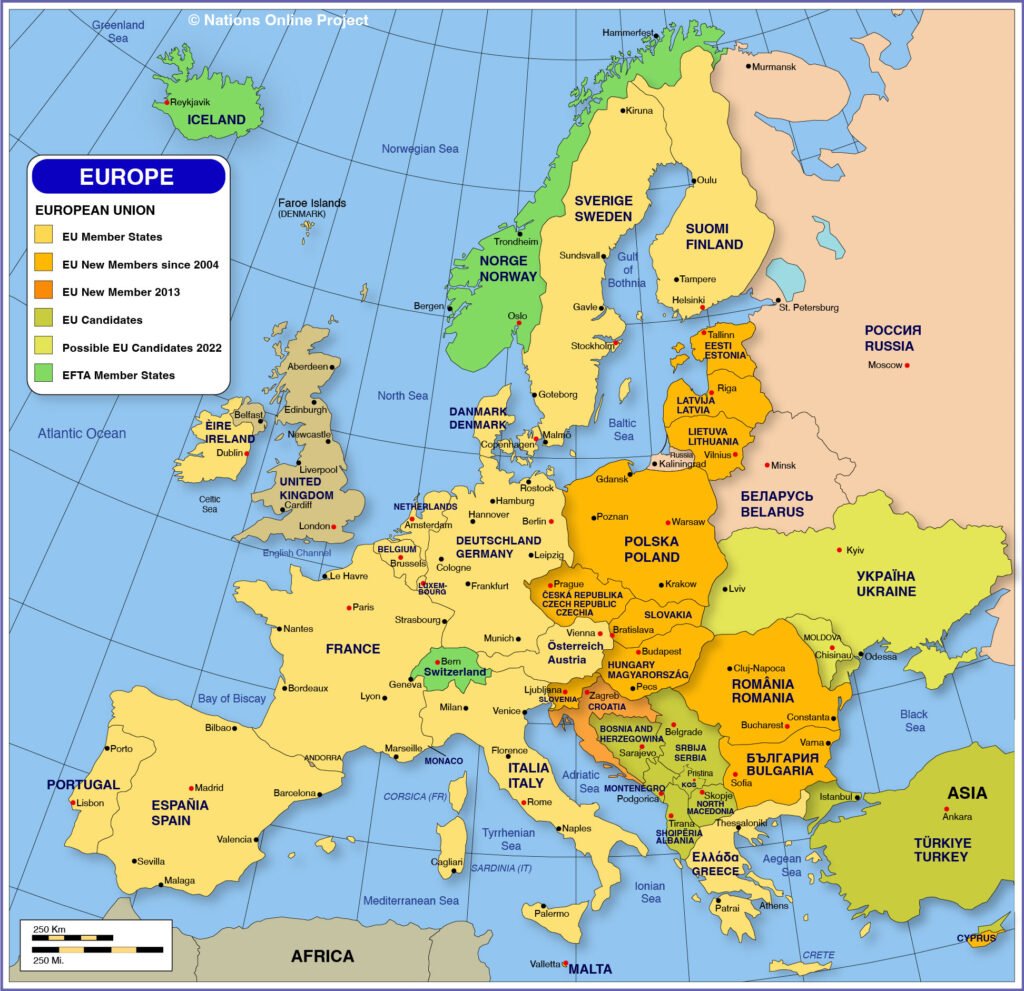
Capital: Amsterdam
Population: 18,004,700 (as of 2024, 68th)
Ethnic groups: 74.0% Dutch, 8.4% other European, 2.4% Turkish, 2.4% Moroccan, 2.1% Indonesian, 2.1% Surinamese, 1.1% Dutch Caribbean
Area: 41,865 km2 (134st)
Offical Language: Dutch
Currency: Euro
GDP per Captial: $73,316 (11th)
How To Immigrate To The Netherlands:
Annually, the Netherlands welcomes around 200,000 new immigrants. Foreigners can obtain Dutch citizenship indirectly by becoming a citizen of any of the Netherlands’ constituent nations. Alternatively, they can migrate to the Netherlands through a variety of methods such as working, starting a business, or through self-employment.
MVV Visa:
Apart from investment immigration, almost all Dutch residence permits (self-employment, entrepreneurship, skilled immigration, scholars, multinational company employees) consist of a two-part application process:
First, you need to apply for a D-type MVV (machtiging tot voorlopig verblijf) visa through the Netherlands’ overseas consulates at labor office UVW of the Netherlands.
Then, after entering the Netherlands, the visa can be converted into different forms of residence permits through IND(the Immigration and Naturalization Service).
Residence Permit For High Skilled Workers:
To apply for a Dutch work visa, the applicant must be supported by a local employer registered with IND(the Dutch Immigration Department), and must also meet certain income requirements. As shown in the following figure, highly skilled individuals under 30 years old must earn a minimum of 3,672 euros per month.
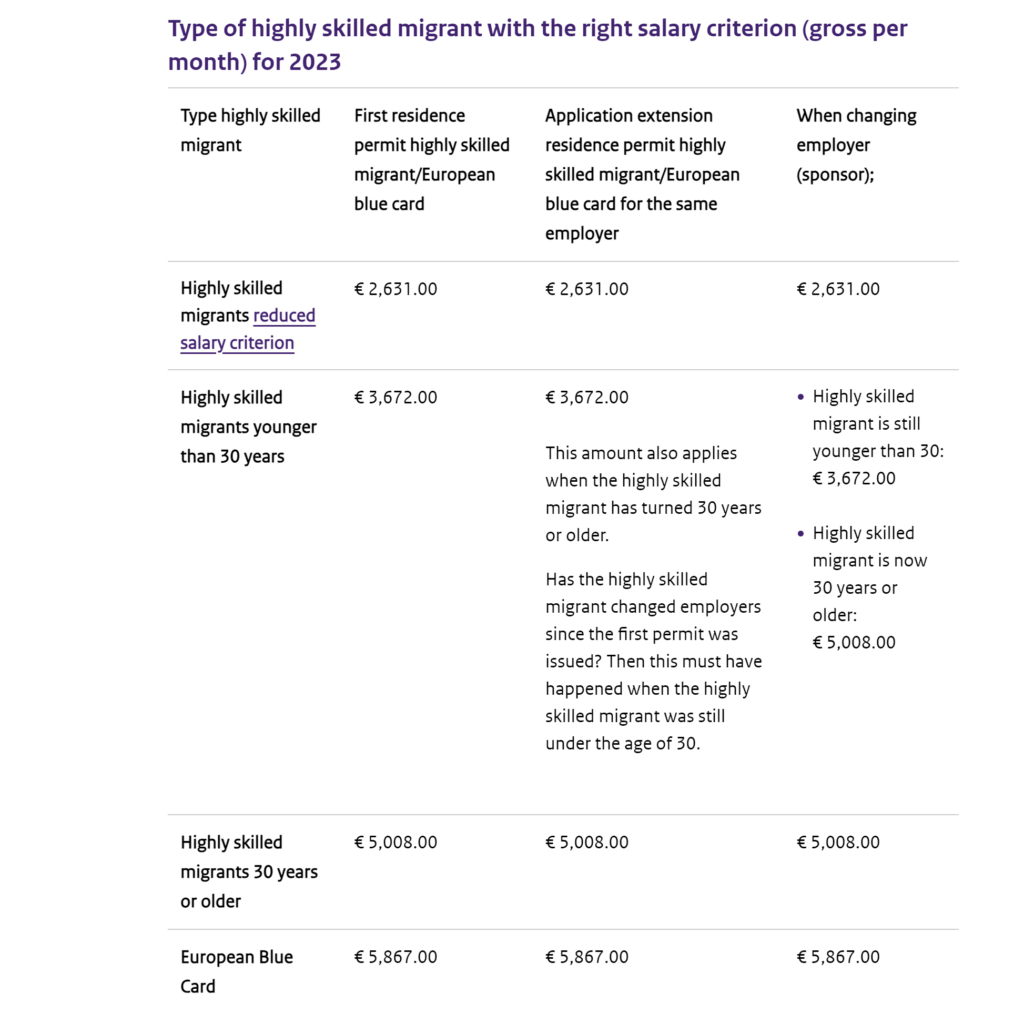
The list of reliable employers (Recognised Sponsor) recognized by IND is already included on the website.
Holders of the EU Blue Card can freely work and live in the Netherlands. If your salary reaches or exceeds 5,670 euros per month, you can also apply for the EU Blue Card in the Netherlands.
Residence Permit For Foreign Startups:
Applicants seeking the Dutch startup visa must operate a company that is affiliated with an incubator located within the Netherlands. The provided product or service must be innovative and pertain to a burgeoning industry. Additionally, they must comply with the specified income requirement (a monthly income of 2,631 euros).
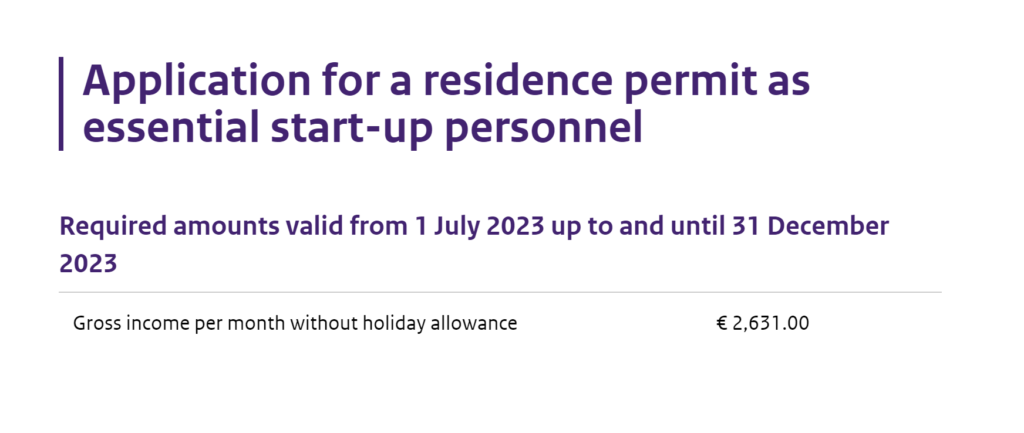
This income stipulation can be fulfilled either through bank deposits or sponsorship provided by other Dutch individuals or legal entities, such as incubators.
Residence Permit For Self-employed Person:
The Dutch self-employment visa is designated for foreigners aspiring to work as self-employed individuals within the Netherlands.
As a prerequisite for this visa, applicants must provide evidence that their product or service is innovative and positively contributes to the Dutch economy.
RVO(The Netherlands Enterprise Agency) evaluates your eligibility based on a point system, taking into account your personal background, business plan, and the potential benefits to the Dutch economy (a scoring chart is available on the website). Each of the three categories requires a minimum of 30 points, making a total of 90 points necessary to qualify for the application.
To be eligible, applicants must have a minimum of one client in the Netherlands and fulfill specific monthly income requirements, which fluctuate based on age and occupation. As of 2023, the lowest monthly income stipulation is 1,508.22 euros.
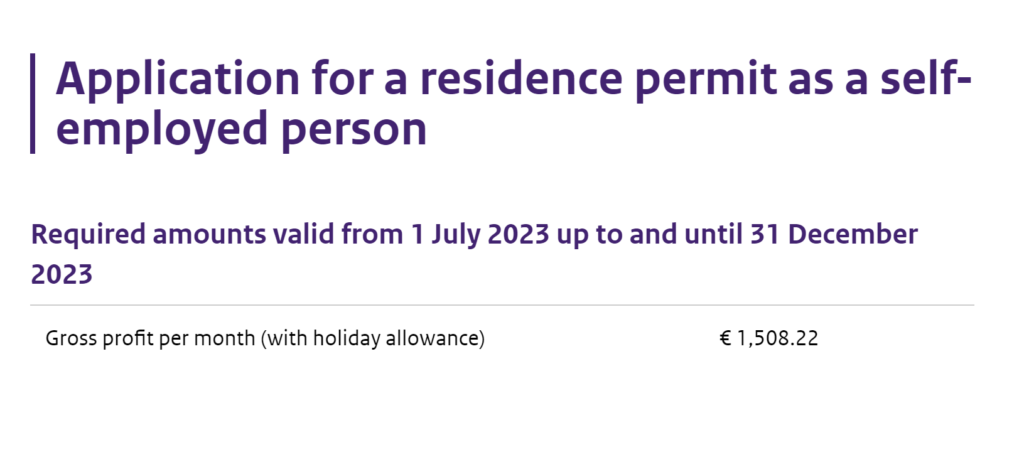
The self-employment visa application must be conducted offline. Initially, applicants need to apply for an MVV visa and subsequently apply for a self-employment visa within 90 days of arriving in the Netherlands.
Naturalization:
For the majority of long-term Dutch residence visas, the main applicant’s spouse and their children under 18 can also secure visas as dependent applicants.
Typically, Dutch residence visas are granted for a three-year period, with the possibility of extension. After living in the country legally for a period of five years (with a minimum of four months per year within the EU), foreign nationals are eligible to apply for permanent residency in the Netherlands.
Foreign nationals who have lived in the Netherlands for at least five consecutive years and have successfully passed the Dutch language and cultural integration tests can apply for Dutch citizenship.
Passport Power:
Apart from refugees, the Netherlands does not recognize dual citizenship. The Dutch passport ranks 4th in the world, and citizens can travel freely (either visa-free or with visa on arrival) to 188 countries and regions around the globe.
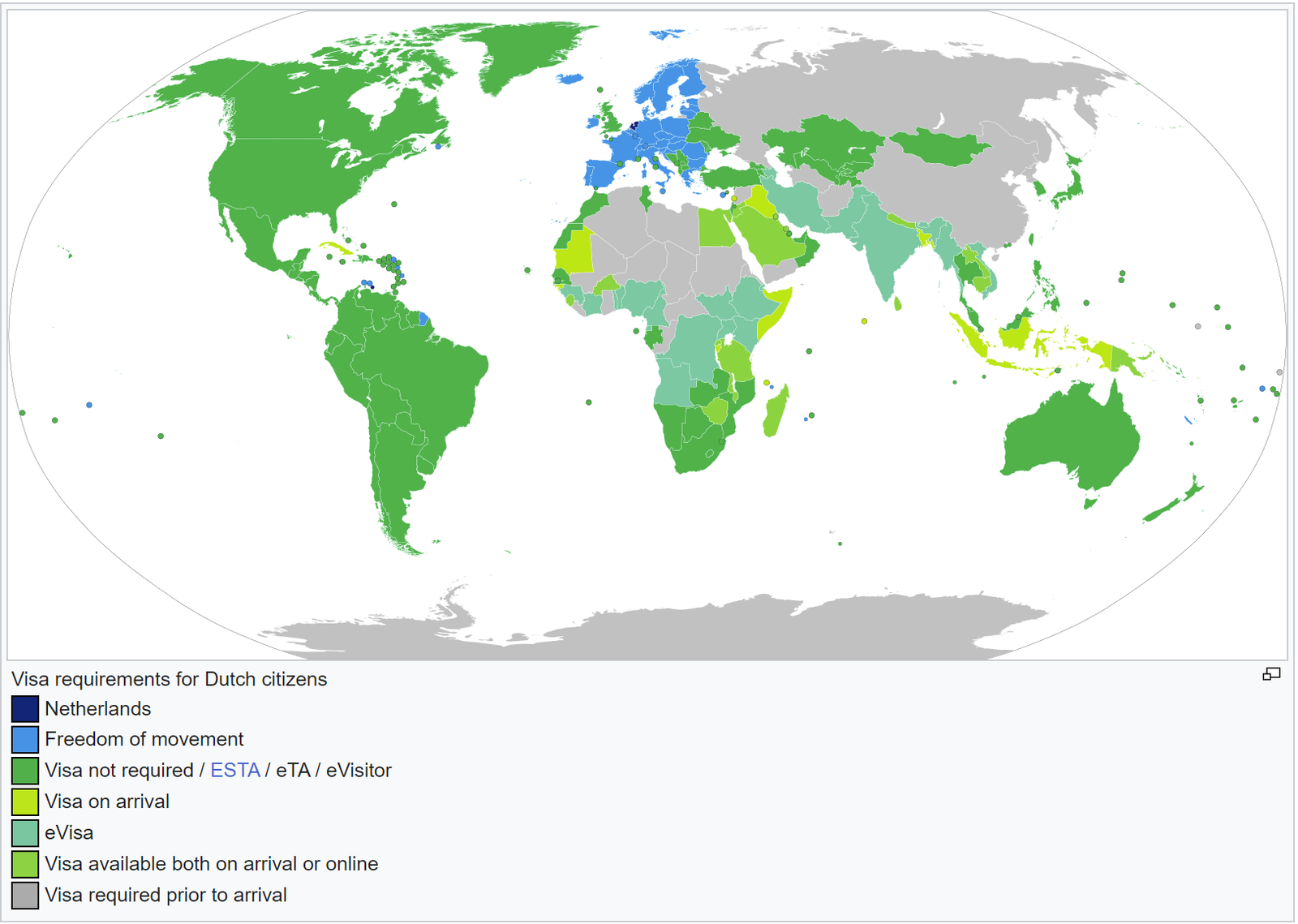
Useful Links:
IND(the Immigration and Naturalization Service):https://ind.nl/en
The Netherlands Government Website Immigration Page:https://www.government.nl/topics/immigration-to-the-netherlands
Income requirements for all Dutch residency permits:https://ind.nl/en/required-amounts-income-requirements#application-to-work-as-a-highly-skilled-migrant-and-for-the-european-blue-card
The Netherlands Self-employed Permit point table:https://wetten.overheid.nl/BWBR0012002/2016-10-01#Bijlage8a